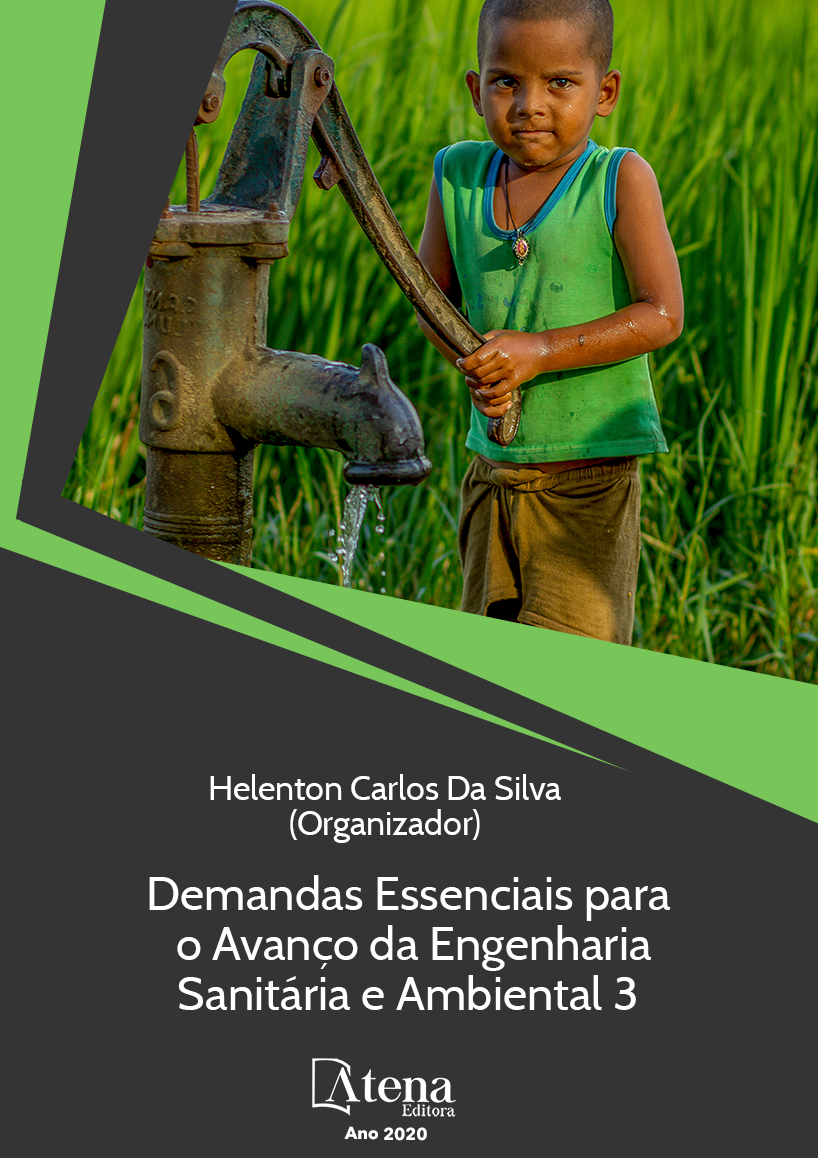
DISPOSIÇÃO DE RESÍDUOS SÓLIDOS URBANOS NO CONE SUL DE RONDÔNIA: UM RETRATO DA SITUAÇÃO RECORRENTE NA AMAZÔNIA OCIDENTAL
Há muito se discute, com maior
ou menor intensidade, a destinação dos
resíduos gerados nos centros urbanos. A luta
dos municípios contra essa situação se reflete
no grande número de regulamentos e editos,
em repetidos avisos, ameaças e apelos aos
cidadãos. Diante desse cenário, após 20 anos
de tramitação pelo congresso, a Lei 12.305
de 10 agosto de 2010 que institui a Política
Nacional de Resíduos Sólidos, foi publicada,
passando o Brasil a ter um marco regulatório
para essa questão. Dessa forma este trabalho
teve como objetivo conhecer se a disposição
final dos resíduos sólidos urbanos estão
atendendo a legislação, bem como, se os
projetos de reabilitação das áreas degradadas
estão sendo elaborados nos municípios do
Cone Sul de Rondônia. O que se constatou
foi a dificuldade financeira e de pessoal
qualificado para a efetivação do que preconiza
a Lei. Em relação as áreas dos lixões, a única
atitude tomada pelos gestores municipais foi
fechar para novos depósitos, vale ressaltar
que, a participação de alguns municípios na
organização de um consórcio intermunicipal,
a elaboração dos planos municipais de gestão
de resíduos sólidos urbanos e a presença de
dois Aterros Sanitários localizados próximo aos
municípios pesquisados, instituem-se como
pontos potencialmente favoráveis, no entanto,
percebeu-se fortes entraves políticos, sociais
e financeiros para a mudança no cenário da
gestão dos resíduos nos mesmos.
DISPOSIÇÃO DE RESÍDUOS SÓLIDOS URBANOS NO CONE SUL DE RONDÔNIA: UM RETRATO DA SITUAÇÃO RECORRENTE NA AMAZÔNIA OCIDENTAL
-
DOI: 10.22533/at.ed.4862021018
-
Palavras-chave: Resíduos Sólidos; Aterro Sanitário; Política Nacional de Resíduos Sólidos
-
Keywords: Solid waste; Sanitary Landfill; National Solid Waste Policy
-
Abstract:
It has long been dis cussed, with
greater or lesser intensity, the disposal of
waste generated in urban centers. The struggle
of the municipalities against this situation is
reflected in the large number of regulations and editos, in repeated warnings, threats
and appeals to citizens. In view of this scenario, after 20 years of processing by the
Congress, Law 12,305 of August 10, 2010 establishing the national Solid waste policy
was published, passing Brazil to have a regulatory framework for this issue. Thus,
this work aimed to know whether the final disposition of municipal solid waste is
complying with legislation, as well, if the rehabilitation projects of degraded areas are
being elaborated in the municipalities of the southern Cone of Rondônia. What was
found was the financial difficulty and qualified personnel for the realization of what the
law recommends. Regarding the areas of the dumps, the only attitude taken by the
municipal managers was to close for new deposits It is noteworthy that the participation
of some municipalities in the organization of an inter-municipal consortium, the
elaboration of municipal urban solid waste management plans and the presence of two
sanitary landfills Located close to the municipalities surveyed, establish themselves as
potentially favorable points, however, strong political, social and financial barriers were
perceived for the change in the waste management scenario.
-
Número de páginas: 15
- Jaqueline Aida Ferrete
- Daniely Batista Alves Martines


